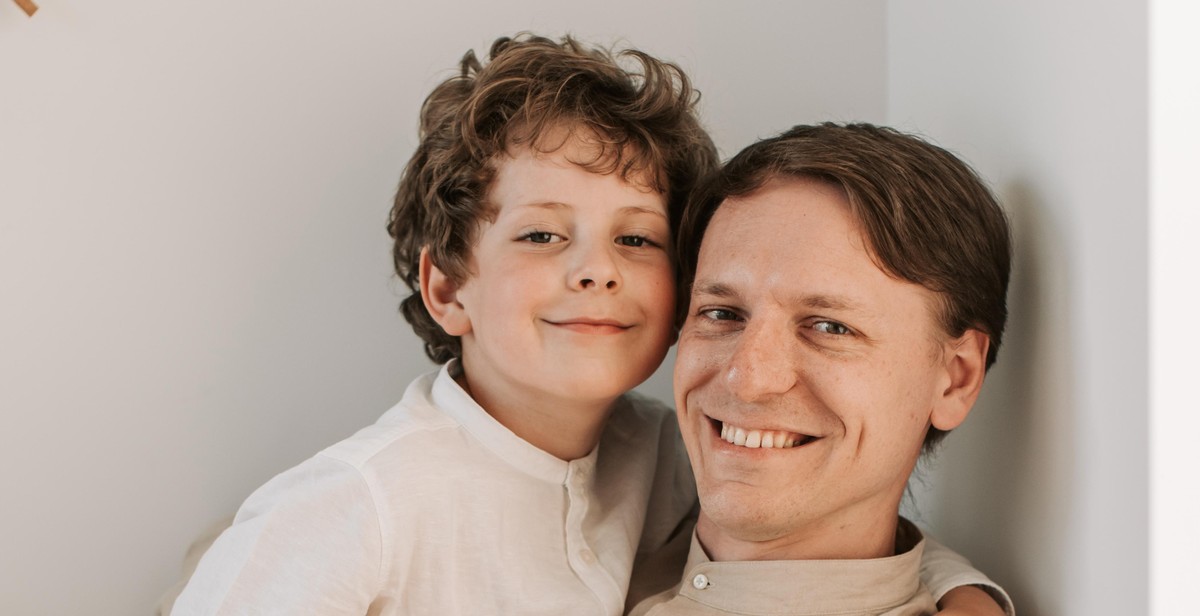The Love Guru’s Guide to Overcoming Relationship Phobias
Relationship phobias, also known as commitment phobias, are common among individuals who have difficulty in committing to a long-term relationship. It is a fear of being emotionally vulnerable, which can lead to a persistent avoidance of romantic relationships or a series of short-lived relationships.
Relationship phobias can manifest in different ways, such as fear of abandonment, fear of intimacy, or fear of losing one’s independence. These fears can be deeply rooted in past experiences, childhood trauma, or cultural and societal influences.
Individuals with relationship phobias may struggle with trust, communication, and emotional intimacy, which can negatively impact their personal and professional lives. It can also lead to feelings of loneliness, isolation, and low self-esteem.
Common Signs of Relationship Phobias
- Fear of commitment or long-term relationships
- Avoidance of emotional intimacy
- Difficulty trusting partners
- Fear of being vulnerable or getting hurt
- Sabotaging relationships before they become too serious
Overcoming relationship phobias requires a willingness to confront and address the underlying fears and beliefs that contribute to this pattern of behavior. With guidance from a therapist or relationship expert, individuals can learn to communicate effectively, build trust, and develop healthy coping mechanisms to overcome their relationship phobias.

Common Relationship Phobias
Relationship phobias are common and can affect anyone. They are the fears and anxieties that individuals experience in romantic relationships. They can be caused by past experiences, societal pressures, or personal beliefs. Understanding these phobias can help you overcome them and build healthy relationships.
Fear of Commitment
Fear of commitment is a common relationship phobia. Individuals with this phobia have a deep-rooted fear of being tied down to one person and being responsible for another person’s emotions and well-being. This fear can stem from past failed relationships, childhood experiences, or personal beliefs.
Individuals with a fear of commitment may avoid long-term relationships or sabotage them when they become too serious. They may also have a pattern of dating unavailable partners or keeping their options open.
Fear of Intimacy
Fear of intimacy is another common relationship phobia. Individuals with this phobia have a fear of being emotionally vulnerable, exposing their true selves, and being rejected. This fear can stem from past experiences of emotional or physical abuse, neglect, or abandonment.
Individuals with a fear of intimacy may avoid physical or emotional closeness, have difficulty expressing their feelings, or have a pattern of attracting partners who are emotionally unavailable.
Fear of Abandonment
Fear of abandonment is a relationship phobia that stems from the fear of being left alone or rejected. Individuals with this phobia may have experienced abandonment in childhood or past relationships, leading to a deep-seated fear of being left alone.
Individuals with a fear of abandonment may cling to their partners, become jealous or possessive, or have a pattern of pushing their partners away to avoid being hurt.
Conclusion
Understanding and overcoming relationship phobias can be a challenging process, but it is essential to building healthy and fulfilling relationships. Seeking professional help and support from loved ones can be helpful in overcoming these fears.

Causes of Relationship Phobias
Relationship phobias are complex and can have a variety of causes. Here are some of the most common causes:
Past Trauma
Past trauma can have a significant impact on one’s ability to form and maintain healthy relationships. Trauma can come in many forms, such as physical or emotional abuse, neglect, or abandonment. These experiences can create deep-seated fears and anxieties that can make it difficult for individuals to trust others and form secure attachments.
Attachment Style
Attachment style is another factor that can contribute to relationship phobias. Attachment style refers to the way individuals form emotional bonds with others, which is often shaped by early experiences with caregivers. Those with an insecure attachment style may struggle with intimacy and have difficulty trusting others, while those with an avoidant attachment style may fear closeness and prefer to keep their distance.
Negative Beliefs
Negative beliefs about oneself or relationships can also contribute to relationship phobias. These beliefs may stem from past experiences or cultural messages about love and relationships. For example, a person who has been repeatedly told that they are unlovable may struggle to believe that anyone could truly love them, leading to a fear of intimacy and commitment.
Overall, relationship phobias can be caused by a combination of factors, including past trauma, attachment style, and negative beliefs. Understanding the root causes of these fears is an important first step in overcoming them and building healthy, fulfilling relationships.

Overcoming Relationship Phobias
Being in a relationship can be a beautiful experience, but for some, it can trigger feelings of fear and anxiety. Relationship phobia is a real condition that affects many individuals, making it difficult for them to form and maintain healthy relationships. However, with the right mindset and approach, it is possible to overcome relationship phobias and enjoy a fulfilling love life.
Identify the Root Cause
The first step in overcoming relationship phobias is to identify the root cause of the fear and anxiety. This could be a past traumatic experience, fear of abandonment, or a lack of trust in others. By understanding the underlying cause of these emotions, individuals can begin to work towards resolving them.
Challenge Negative Thoughts
Relationship phobias are often fueled by negative thoughts and beliefs. These may include thoughts such as “I’m not good enough” or “I’ll only get hurt.” To overcome these phobias, it’s important to challenge these negative thoughts and replace them with positive affirmations. For example, “I am worthy of love” or “I am capable of forming healthy relationships.”
Practice Vulnerability
Being vulnerable is an essential part of forming a healthy relationship. However, for those with relationship phobias, vulnerability can be terrifying. To overcome this fear, it’s important to practice vulnerability in small steps. This could mean opening up to a trusted friend or family member, or even just sharing a personal story with someone new.
By taking these steps to overcome relationship phobias, individuals can begin to form and maintain healthy relationships. It’s important to remember that overcoming these phobias takes time and effort, but with the right mindset and approach, it is possible to enjoy a fulfilling love life.

Tips for Maintaining Healthy Relationships
Relationships are an essential part of life. They bring joy, comfort, and companionship. However, maintaining healthy relationships can be challenging. Here are some tips to help you keep your relationships healthy and strong:
1. Communicate Effectively
Effective communication is the foundation of any healthy relationship. It’s essential to express your thoughts and feelings clearly and listen actively to your partner. Avoid criticism, defensiveness, and contempt as they can damage the relationship. Instead, practice empathy, understanding, and respect.
2. Set Boundaries
Healthy relationships require boundaries. It’s crucial to set limits on what you’re willing to accept and what you’re not. Boundaries help you to respect yourself and your partner while maintaining individuality. Be clear about your needs and expectations, and communicate them with your partner.
3. Show Appreciation and Affection
Showing appreciation and affection is essential in maintaining healthy relationships. Expressing gratitude and affection can help improve your partner’s self-esteem and strengthen the bond between you two. Small gestures like saying thank you, giving compliments, and physical touch can go a long way.
4. Practice Forgiveness
Mistakes and misunderstandings are inevitable in any relationship. It’s essential to practice forgiveness and let go of grudges. Holding onto anger and resentment can damage the relationship over time. Forgiveness can help you move forward and strengthen your bond with your partner.
5. Spend Quality Time Together
Quality time is essential in maintaining healthy relationships. It’s crucial to spend time together doing things you both enjoy and creating new experiences. Quality time can help you connect with your partner, deepen your bond, and create lasting memories.
6. Seek Help When Needed
Healthy relationships require work, and sometimes, seeking professional help may be necessary. If you’re struggling with communication, conflict resolution, or any other relationship issue, seek help from a therapist or counselor. Seeking help shows your commitment to the relationship and can help you overcome any challenges.
By following these tips, you can maintain healthy relationships and overcome any relationship phobias that may be holding you back.

Conclusion
Overcoming relationship phobias can be a daunting task, but with the right mindset and approach, it is possible to conquer them and enjoy a healthy, fulfilling relationship. As a love and relationships psychology guru, I have seen firsthand the damage that relationship phobias can cause. However, I have also seen the incredible transformations that can occur when individuals take the initiative to work through their fears.
Key takeaways
- Relationship phobias are common and can stem from a variety of experiences and beliefs.
- It is important to identify the root cause of your relationship phobia in order to effectively address it.
- Seeking professional help, such as therapy or counseling, can be a valuable tool in overcoming relationship phobias.
- It is important to practice self-care and self-compassion throughout the process of overcoming relationship phobias.
- Remember that overcoming relationship phobias is a journey, and progress may not always be linear.
Final thoughts
Relationships are a fundamental aspect of our lives, and it is important to not let our fears and phobias hold us back from experiencing the joys and benefits of them. By taking the time to address and overcome relationship phobias, individuals can open themselves up to a world of love, connection, and fulfillment.
